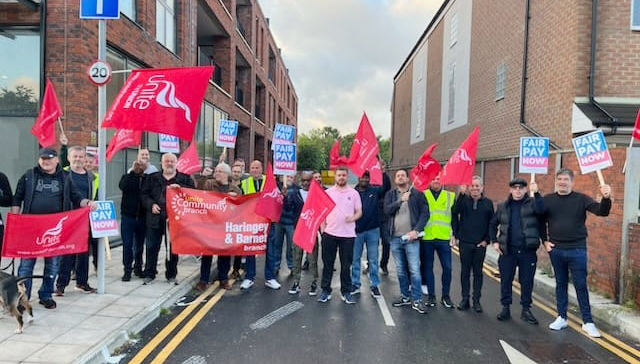LOCAL councils have a hole in their finances exceeding £3.5bn collectively for the coming financial year, making it extremely likely they will have to make huge cuts in essential services and jobs, says a report published yesterday by Unison.
The figures, based on information gathered from local authorities in England, Scotland and Wales, show the true scale of the dire state of local government funding, says the union.
Many authorities will be forced to consider selling land and buildings, as well as slash services for the vulnerable and vital community resources such as waste collection, libraries and leisure centres, Unison warns.
The list is headed by Birmingham City Council, which is £164m short of its spending needs for next year, followed by Thurrock Council with a gap of £157m. Both councils have effectively declared themselves bankrupt in recent months after issuing section 114 notices.
Other authorities with severe cash shortfalls, according to Unison’s research, are Hampshire County Council on £82m, Sheffield City Council which is short some £72.7m and Bradford City Council has £72m less than it needs.
The Unison research, Councils Under Pressure, shows there are 114 councils (31%) that are at least £10m short of their planned spending requirements, while 15 (4%) are as much as £40m adrift.
The record combined shortfall totals almost £3.57bn across councils in the three nations for 2024/25. It means the local authorities will be forced to rely on virtually non-existent cash reserves. All are likely to have to make cuts to services and their workforces, says Unison.
The situation is set to worsen too with the cumulative funding gap rising even further in 2025/26 to over £7bn, warns Unison.
Regardless of their overall political control, the future is bleak for councils with increased energy costs, a decade and more of reduced government funding and inflation all worsening their financial position, the union adds.
The huge scale of the budget shortfall across local government means a growing number of councils are teetering on the brink, Unison warns.
Unison’s research is based on data relating to 369 local councils across Britain. It found that the vast majority (86%) have a predicted budget gap, with just 52 (14%) saying they are on course to balance the books.
Most are responding to the crisis by cutting services and activities.
Unison general secretary Christina McAnea said: ‘Communities rely on their local authorities for all manner of essential services, such as waste collection, social care, road repairs and parks and other open spaces.
‘But councils are on their knees. Ministers seem to care very little about public services and local government has been hit hard over very many years.
‘Essential services can’t run on thin air. Staff levels have already been cut to the bone in desperate attempts to balance the books.’
The top 20 funding gaps are as follows:
- Birmingham City Council, West Midlands: £164,838,000
- Thurrock Council, Eastern: £156,540,000
- Hampshire County Council, South East: £82,000,000
- Sheffield City Council, Yorkshire & Humberside: £72,700,000
- Liverpool City Council, North West £67,038,000
- Leeds City Council, Yorkshire & Humberside: £59,200,000
- Nottingham City Council, East Midlands: £50,903,000
- Shetland Islands Council Scotland £47,100,000
- Kirklees Council Yorkshire & Humberside £47,000,000
- Highland Council, Scotland: £46,688,000
- Norfolk County Council, Eastern: £45,920,000
- Bournemouth, Christchurch & Poole Council, South West: £44,400,000
- Leicester City Council, East Midlands: £44,200,000
- Somerset County Council, South West: £41,562,000
- Warrington Borough Council: £38,957,000
- Medway Council, South East: £38,745,000
- Glasgow City Council, Scotland: £37,700,000
- Edinburgh City Council, Scotland: £37,600,000
• Caerphilly Council, Wales: £37,414,000.
